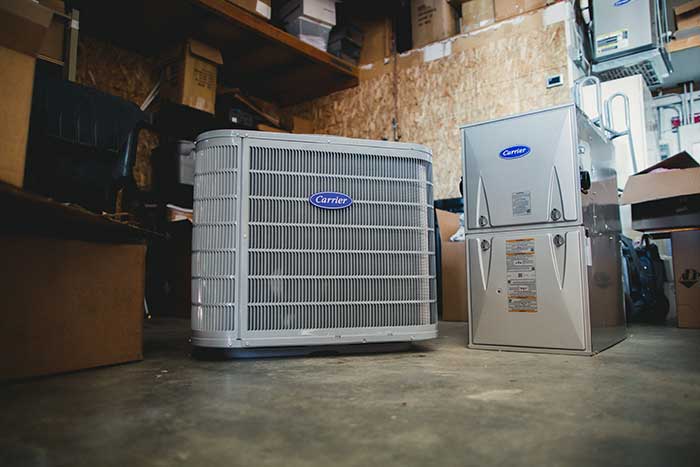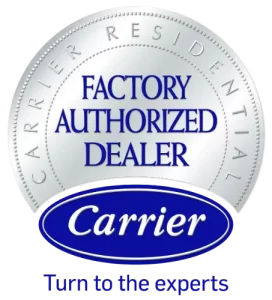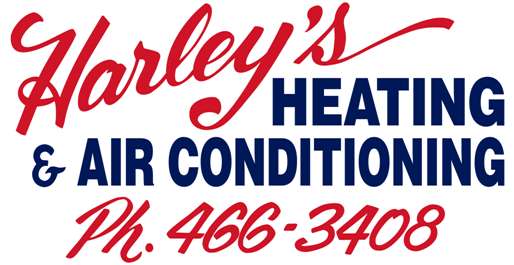FAQs
How Often Should I Change My Air Filter?
We recommend checking your air filter monthly and replacing it every 30 to 90 days, depending on several factors unique to your home. If you have pets, allergies, or live in a dusty environment, you’ll need to change filters more frequently. Standard one-inch filters typically need replacement every month, while thicker four-inch filters can last up to three months. At Harley's Heating and Air Conditioning, we’ve been helping homeowners in Lincoln, NE maintain their systems since 1970, and we know that regular filter changes are the simplest way to keep your system running efficiently. A clogged filter forces your system to work harder, increasing energy bills by up to 15% and potentially causing premature equipment failure.
During our service calls throughout Lincoln, NE & the surrounding areas, we often find that dirty filters are the root cause of many heating and cooling problems. When airflow becomes restricted, your system can freeze up in summer or overheat in winter, leading to unexpected breakdowns. We stock various filter sizes on our service vehicles and can help you establish a replacement schedule that works for your specific situation.
What Temperature Should I Set My Thermostat?
For optimal comfort and energy efficiency, we recommend setting your thermostat to 68 degrees Fahrenheit during winter heating months and 78 degrees during summer cooling season when you’re at home. These settings balance comfort with energy savings, potentially reducing your utility bills by 10% annually. Every degree you adjust away from these baseline temperatures can impact your energy consumption by approximately 3%. Our NATE-certified technicians have observed that maintaining consistent temperatures rather than making dramatic adjustments throughout the day helps your system operate more efficiently and extends equipment life.
Programmable and smart thermostats can automatically adjust temperatures when you’re away or sleeping, maximizing savings without sacrificing comfort. We install and service all major thermostat brands and can help you select the right model for your lifestyle and budget. Many homeowners in Lincoln, NE have discovered that upgrading to a programmable thermostat pays for itself within the first year through energy savings alone.
Why Is My System Making Strange Noises?
Unusual sounds from your heating and cooling system often indicate specific mechanical issues that require professional attention. Banging or popping sounds typically result from expanding and contracting ductwork or delayed ignition in gas furnaces. Squealing or screeching usually points to belt problems or bearing issues in the blower motor. Rattling might indicate loose components, while gurgling sounds often suggest refrigerant issues or condensate drainage problems. Our family-owned and operated company has diagnosed these issues for over 50 years, and we understand how concerning unexpected noises can be.
We offer seven-day-a-week availability with no overtime fees on repairs because we know that strange noises don’t always occur during regular business hours. Our technicians carry comprehensive diagnostic equipment to identify the exact source of unusual sounds quickly. Whether it’s a simple adjustment or a component replacement, we provide accurate assessments and cost-effective solutions without exploiting emergency situations.
How Can I Improve My Indoor Air Quality?
Indoor air quality affects your family’s health, comfort, and overall well-being. We offer several solutions to address common air quality concerns:
- Whole-house air purification systems: Remove up to 99% of airborne particles including dust, pollen, and bacteria
- UV germicidal lights: Eliminate mold, bacteria, and viruses from your air handler and ductwork
- Humidity control systems: Maintain optimal 30-50% humidity levels year-round
Poor indoor air quality can trigger allergies, asthma, and other respiratory issues while also affecting your HVAC system’s efficiency. Dust accumulation on components reduces heat transfer efficiency, while excessive humidity promotes mold growth and makes your home feel uncomfortable even at proper temperatures.
When Should I Replace My HVAC System?
Most heating and cooling systems last between 15 to 20 years with proper maintenance. However, several factors indicate it might be time for replacement before complete failure occurs. If your system requires frequent repairs, with annual repair costs exceeding 50% of replacement cost, investing in new equipment becomes more economical. Rising energy bills despite regular maintenance suggest declining efficiency, and older systems using R-22 refrigerant face increasing service costs due to the phase-out of this refrigerant type.
Our compassionate approach means we’ll never pressure you into unnecessary replacements. We provide honest assessments based on equipment condition, repair history, and your long-term comfort goals. With 24/7 emergency service available, we’re here whenever you need guidance about repair versus replacement decisions, helping you make informed choices that align with your budget and comfort needs.







